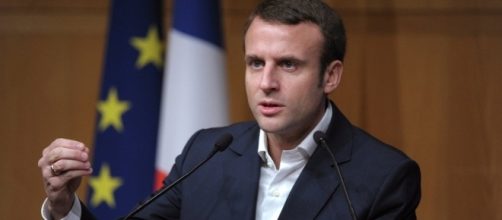Members of the French political landscape on Monday announced their support for emmanuel macron, the Europhile candidate facing Marine Le Pen in the final race for the French Presidency on May 7th. Following the first round of voting, fellow competitors Francois Fillon and Benoit Hamon were swift in their endorsement of the centrist Macron after he recorded the largest share of the vote and pushed Le Pen into second place. This triumph in the initial phase now puts Macron firmly in place for a victory in the run-off and set to be announced as the next President of France.
Furthermore, on Monday the current President Francois Hollande urged voters to reject the Far-Right and its leader Le Pen and put their faith and trust in the Centrist candidate, ensuring Le Pen would find it difficult to achieve the level of support required to cause a political upset and send tremors across the continent as a whole.
Financial upsurge
The results in the first round were verified by financial markets when they opened on Monday morning. Both French and other European stock markets rose on the news of Macron's performance and likely victory, with the single currency also seeing a sharp rise against the dollar, reaching a five-month high during a period of significant upheaval across the continent.
Seen by many as an extremely market friendly politician, the former banker Macron has put forward some ambitious plans to reform labor markets in the country alongside encouraging deeper integration, both political and economic, across Europe. He has also promised to introduce swift spending cuts aimed at reducing the country's deficit, although such a move is expected to encounter opposition from the other defeated parties.
Boost for Europe
In a move that went against standard protocol, the president of the European Commission Jean-Claude Juncker made a statement announcing his support for Emmanuel Macron whilst at the same time issuing a rallying cry against those attempting to destroy the European Union.
Whilst the EU in general declines to involve itself with national elections, the Commission's spokesperson Margaritis Schinas stated that in this case, it was necessary to define Macron as pro-European whereas Le Pen aimed to "seek its destruction".
Whilst the National Front were successful in reaching the second round of voting, the political climate in Europe has taken a slightly unexpected turn since the election of President Trump in the US. Whilst the election of Trump on strong anti-immigration sentiment had given Far-Right groups across Europe a reason to celebrate, this has not resulted in success in terms of actual political support in their respective nations. Both Austria and The Netherlands significantly rejected such parties in their relative national elections and it seems France will follow that path in the next few weeks.
The ineffectiveness of the Trump administration has led electorates across Europe to think twice about such negative campaigning and policies. In attempting to shake up the political establishment since coming to power, President Trump's poor performance seems only to have led to greater integration, a rejection of anti-immigration rhetoric and thus a strengthening of the EU as a whole.

